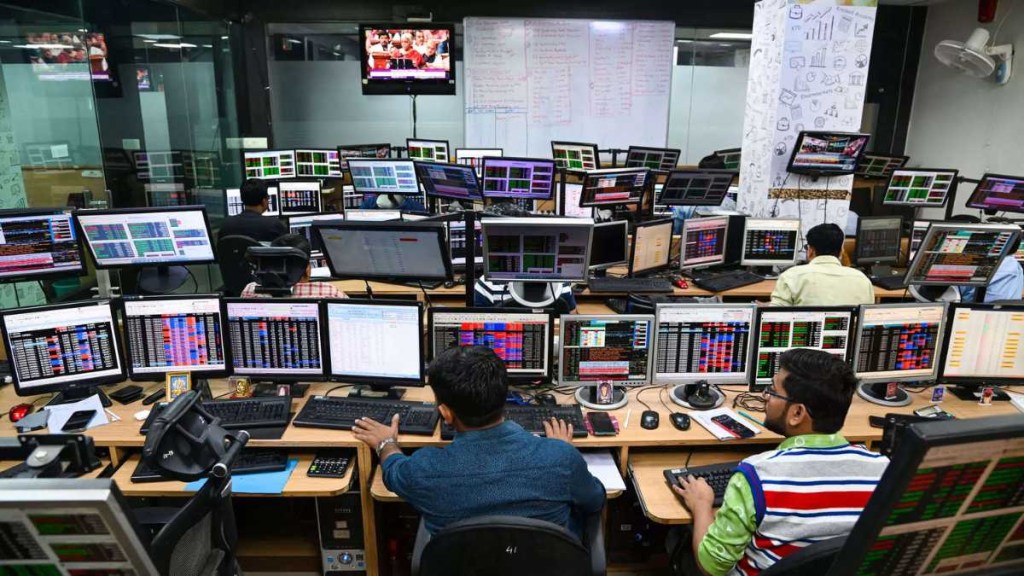Foreign institutional investors (FII) purchased shares worth net Rs 317.01 crore, while domestic institutional investors (DII) sold shares worth net Rs 102.88 crore on October 13, 2023, according to the provisional data available on the NSE.
For the month till October 13 2023, FIIs sold shares worth net Rs 10,612.64 crore while DIIs bought shares worth net Rs 8,372.83 crore. In the month of September, FIIs offloaded shares worth net Rs 26,692.16 crore while DIIs added equities worth a net Rs 20,312.65 crore.
“The FPI selling which began in September continues in October. The sustained rise in the US bond yields was the principal factor driving the FPI selling. FPIs continued to sell in financials, power and IT and continued to buy in capital goods and automobiles. The Indian market continues to exhibit resilience even in the midst of many challenges and, therefore, there is a growing concern among FPIs that if they continue to sell, they will miss out on the potential rally in the Indian market. This might restrain the FPIs from selling heavily in the coming days. However, if the Israel-Hamas conflicts widens and crude shoots up, they might continue to sell. The level of uncertainty is high,” said V K Vijayakumar, Chief Investment Strategist at Geojit Financial Services.
On Friday, the NSE Nifty 50 fell 0.22% to settle at 19,751.05, while the BSE Sensex shed 125.65 points to 66,282.74.
Foreign institutional investors (FII) or Foreign portfolio investors (FPI) are those who invest in the financial assets of a country while not being part of it. On the other hand, domestic institutional investors (DII), as the name suggests, invest in the country they’re living in. Political and economic trends impact the investment decisions of both FIIs and DIIs. Additionally, both types of investors – foreign institutional investors (FIIs) and domestic institutional investors (DIIs) – can impact the economy’s net investment flows.

